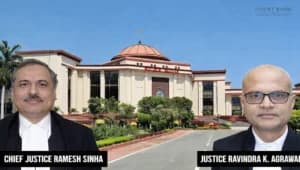In a significant ruling, the Supreme Court on Wednesday set aside a Calcutta High Court directive ordering All India Radio (AIR) and the Union of India to absorb a waitlisted Scheduled Caste (SC) candidate, Subit Kumar Das, nearly 25 years after his initial selection process in 1997. The apex court held that extending such benefit would violate recruitment rules and unfairly disadvantage fresh candidates seeking employment.
Background
The long legal tussle dates back to 1997, when AIR’s Eastern Zone sought to fill three technician posts reserved for SC candidates. After interviews, three individuals were selected, and Das was placed at the top of the reserve (waiting) list. Since all selected candidates joined their posts, Das’s name never moved up.
Feeling aggrieved, Das approached the Central Administrative Tribunal (CAT), Kolkata, alleging bias and procedural lapses. Although the tribunal dismissed his claims, it took note of an assurance given on 15 January 1999 by AIR’s counsel that “as soon as a vacancy would arise against the SC quota, the applicant would be absorbed.” Relying on this assurance, Das continued to pursue his case for over two decades.
In 2024, the Calcutta High Court directed AIR to absorb Das as a technician, holding that the department had failed to honour its 1999 assurance and calling the age-bar argument “illegal”. The Union of India challenged this direction before the Supreme Court.
Court’s Observations
Justice Atul S. Chandurkar, writing for the Bench that included Justice P.S. Narasimha, noted that the High Court had “glossed over vital legal aspects.” The apex court emphasized that a waitlisted candidate has no vested right to claim appointment once all selected candidates join their posts.
“The right to be considered for appointment springs only if a selected candidate does not join,” the Bench observed, adding that the waiting list cannot be treated as an “infinite stock for appointments.”
The Court said the 1999 statement made by the government’s counsel could not override statutory recruitment rules. “A wrong concession on a question of law made by counsel is not binding on the client,” the Bench remarked, citing earlier judgments such as Uptron India Ltd. v. Shammi Bhan and Director of Elementary Education, Odisha v. Pramod Kumar Sahoo.
The judges also underlined that implementing the High Court’s order would “extend the life of a wait list indefinitely,” effectively allowing a 1997 candidate to secure appointment decades later - a move that would be “unfair to new aspirants.”
Decision
Setting aside the Calcutta High Court’s June 2024 order, the Supreme Court held that Das’s right to appointment had expired once the original 1997 vacancies were filled. The Court categorically ruled that the 1999 assurance could not be enforced if it violated recruitment rules.
“The available vacancies having been filled up in 1997 resulted in exhaustion of the wait list. The High Court has, therefore, erred in directing absorption of the respondent,” Justice Chandurkar stated while allowing the Union’s appeal.
With this, the two-judge bench allowed the appeal filed by the Union of India and AIR, dismissing Das’s claim for absorption and closing a 28-year-old employment dispute. No costs were awarded.
Case: Union of India & Ors. vs. Subit Kumar Das (2025)
Citation: 2025 INSC 1235
Case Type: Civil Appeal (Arising out of SLP (Civil) Diary No. 57192 of 2024)
Date of Judgment: October 15, 2025














